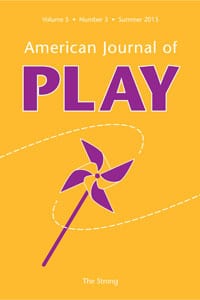Play as Preparation for Learning and Life: An Interview with Peter Gray
Peter Gray, research professor at Boston College and past chair of its Psychology Department, originally trained in neurobiology at Columbia and Rockefeller University; but he now publishes in the fields of comparative, evolutionary, developmental, and educational psychology. In the academy, Gray is known best for his widely assigned university-level textbook Psychology, now in its sixth edition. His Psychology Today blog—“Freedom to Learn: Play and Curiosity as Foundations for Learning”—has earned a large following while drawing eclectically from recent scholarship in history, anthropology, sociology, and economics. Gray has long appreciated how spontaneous, unsupervised play aids self-directed learning and self-assurance in children, and he explores this natural process and its societal implications at length in his latest book, Free to Learn: Why Unleashing the Instinct to Play Will Make Children Happier, More Self-Reliant, and Better Students for Life. In this interview, Gray talks about the lifelong social, physical, and moral value of play, and he identifies and traces the consequences of factors that in recent decades have eroded opportunities to play. As a sharp and methodical critic of the way America currently delivers education, he offers remedies for creeping playlessness and academic underachievement that include a root-and-branch rethinking of mainstream schooling. Key words: definition of play; developmental psychology; evolutionary psychology; evolution of play; informal games; modern schools; play study; Sudbury Valley School.




